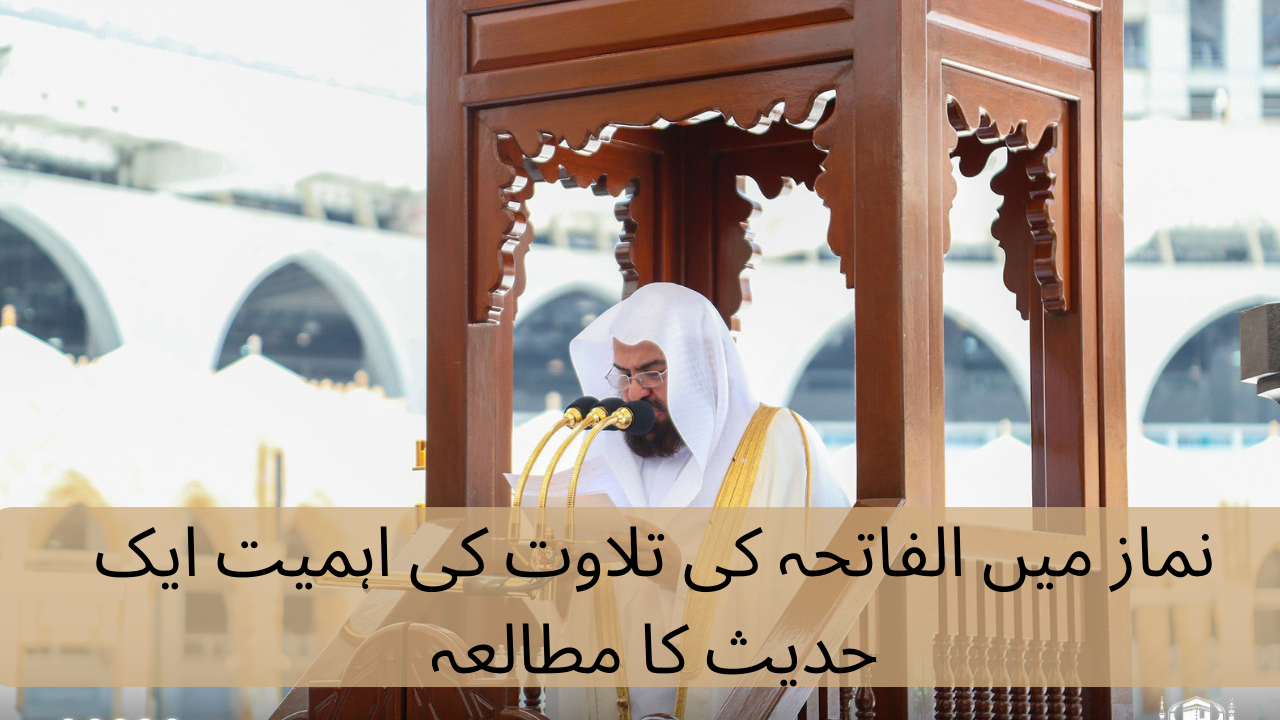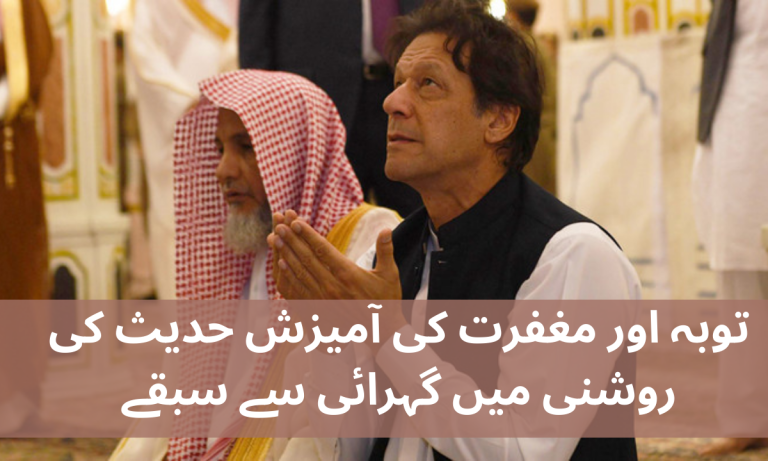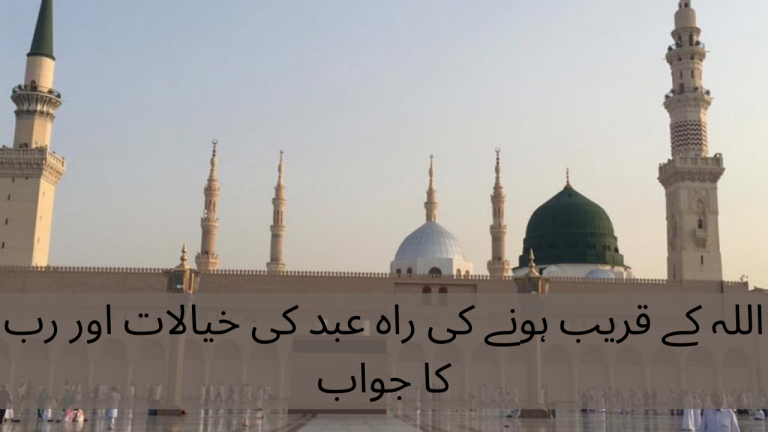Namaz May Surah Al Fatiha Ki Tilaweat Par Rasoolullah Ka Farman

Namaz May Surah Al Fatiha Ki Tilaweat Par Rasoolullah Ka Farman
Someone said to Abu Hurayrah: [Even though] we are behind the imam? (2) He said: Recite it to yourself, for I have heard the Prophet (may the blessings and peace of Allah be up on him) say: Allah (mighty and sublime be He), had said: I have divided prayer between Myself and My servant into two halves, and My servant shall have what he has asked for. When the servant says: Al-hamdu lillahi rabbi l-alamin (3), Allah (mighty and sublime be He) says:
Read The Hadees
رواه مسلم (وكذلك مالك والترمذي وأبو داود والنسائي وابن ماجه)
Here is the hadith you provided in Arabic, Urdu, and English
Arabic (العربية): عَنْ أَبِي هُرَيْرَةَ رَضِيَ اللَّهُ عَنْهُ، عَنْ النَّبِيِّ صَلَّى اللَّهُ عَلَيْهِ وَسَلَّمَ قَالَ: “مَنْ صَلَّى صَلَاةً لَمْ يَقْرَأْ فِيهَا بِأُمِّ الْقُرْآنِ، فَهِيَ خِدَاجٌ(1) ثَلَاثًا، غَيْرَ تَمَامٍ، فَقِيلَ لِأَبِي هُرَيْرَةَ: إِنَّا نَكُونُ وَرَاءَ الْإِمَامِ، فَقَالَ: اقْرَأْ بِهَا فِي نَفْسِكَ، فَإِنِّي سَمِعْتُ النبي صَلَّى اللَّهُ عَلَيْهِ وَسَلَّمَ يَقُولُ: قَالَ اللَّهُ عَزَّ وَجَلَّ: قَسَمْتُ الصَّلَاةَ بَيْنِي وَبَيْنَ عَبْدِي نِصْفَيْنِ، وَلِعَبْدِي مَا سَأَلَ، فَإِذَا قَالَ الْعَبْدُ
{ الْحَمْدُ لِلَّهِ رَبِّ الْعَالَمِينَ } قَالَ اللَّهُ عَزَّ وَجَلَّ: حَمِدَنِي عَبْدِي، وَإِذَا قَالَ:{ الرَّحْمَنِ الرَّحِيمِ } قَالَ اللَّهُ عَزَّ وَجَلَّ: أَثْنَى عَلَيَّ عَبْدِي، وَإِذَا قَالَ:{ مَالِكِ يَوْمِ الدِّينِ } قَالَ اللَّهُ: مَجَّدَنِي عَبْدِي – وَقَالَ مَرَّةً: فَوَّضَ إِلَيَّ عَبْدِي، فَإِذَا قَالَ:{ إِيَّاكَ نَعْبُدُ وَإِيَّاكَ نَسْتَعِينُ } قَالَ: هَذَا بَيْنِي وَبَيْنَ عَبْدِي وَلِعَبْدِي مَا سَأَلَ، فَإِذَا قَالَ:{ اهْدِنَا الصِّرَاطَ الْمُسْتَقِيمَ صِرَاطَ الَّذِينَ أَنْعَمْتَ عَلَيْهِمْ غَيْرِ الْمَغْضُوبِ عَلَيْهِمْ وَلَا الضَّالِّينَ } قَالَ: هَذَا لِعَبْدِي وَلِعَبْدِي مَا سَأَلَ”.
Urdu (اردو)
حضرت ابو ہریرہؓ نبی کریم صلی اللہ علیہ وآلہ وسلم سے روایت کرتے ہیں کہ وہ فرماتے ہیں: “جو شخص ایسی نماز پڑھے جس میں ام القرآن نہ پڑھے، تو وہ تین بار خدا کو پکارتا ہے (خدائی میں کمی کرتا ہے) اور وہ تکمیل نہیں کرتا۔” کسی نے پوچھا: ہم امام کے پیچھے ہوتے ہیں تو ایسی نماز میں کیا پڑھیں؟ تو حضرت ابو ہریرہؓ نے فرمایا: اپنی جانی پڑھو، میں نے نبی کریم صلی اللہ علیہ وآلہ وسلم سے سنا کہ اللہ تعالی نے فرمایا
میری نماز کو میں اور میرا بندہ آدھا آدھا کریں اور میرا بندہ جو چاہے میری دعا کرے۔ جب وہ فرماتا ہے: ‘الحمد لله رب العالمین’ تو خدا تعالی کہتا ہے: میرا بندہ نے میری تعریف کی، اور جب وہ فرماتا ہے: ‘الرحمن الرحیم’ تو خدا تعالی کہتا ہے: میرا بندہ نے مجھ پر احسان کیا۔ اور جب وہ فرماتا ہے: ‘مالک یوم الدین’ تو خدا تعالی کہتا ہے: میرا بندہ نے میری عظمت کی، اور ایک دفعہ فرمایا: میرا بندہ میرے حوالے کر دیا۔ اور جب وہ فرماتا ہے: ‘إِیَّاكَ نَعْبُدُ وَإِیَّاكَ نَسْتَعِینُ’ تو خدا تعالی کہتا ہے
یہ میرے اور میرے بندے کے درمیان ہے، اور میرا بندہ جو چاہے میری مدد مانگے۔ اور جب وہ فرماتا ہے: ‘اهْدِنَا الصِّرَاطَ الْمُسْتَقِیمَ صِرَاطَ الَّذِینَ أَنْعَمْتَ عَلَیْهِمْ غَیْرِ الْمَغْضُوبِ عَلَیْهِمْ وَلَا الضَّالِّینَ’ تو خدا تعالی کہتا ہے: یہ میرے بندے کیلئے ہے اور میرے بندے کیلئے جو چاہے۔”
English (إنجليزية): Narrated by Abu Huraira (may Allah be pleased with him), the Prophet Muhammad (peace be upon him) said: “Whoever performs a prayer and does not recite the Opening of the Book (Al-Fatiha) in it, his prayer is incomplete, lacking something. It was said to Abu Huraira:
‘We are behind the Imam (the one leading the prayer).’ He said: ‘Recite it to yourself, for I heard the Prophet Muhammad (peace be upon him) say: Allah, the Exalted, has said: I have divided the prayer into two halves between Me and My servant, and My servant shall have what he has asked for. When the servant says
: ‘Praise be to Allah, the Lord of all the worlds,’ Allah says: ‘My servant has praised Me.’ When he says: ‘The Most Merciful, the Most Compassionate,’ Allah says: ‘My servant has extolled Me.’ When he says: ‘Master of the Day of Judgment,’ Allah says: ‘My servant has glorified Me,’ and sometimes He will say: ‘My servant entrusted (his affairs) to Me.’ When he says: ‘You alone we worship, and You alone we ask for help,’ Allah says:
‘This is between Me and My servant, and My servant shall have what he has asked for.’ When he says: ‘Guide us on the Straight Path, the path of those who have received Your grace; not the path of those who have brought down wrath upon themselves, nor of those who have gone astray,’ Allah says: ‘This is for My servant, and My servant shall have what he has asked for.'”
Benefits Of This Hadees
The hadith you mentioned highlights several important benefits and lessons:
Significance of Reciting Al-Fatiha in Prayer
- The hadith emphasizes the importance of reciting Al-Fatiha, the opening chapter of the Quran, during the prayer. It underscores that a prayer is incomplete if Al-Fatiha is not recited. This serves as a reminder to Muslims to focus on their prayers and ensure they recite Al-Fatiha in each unit of their prayer (Rak’ah).
Understanding Allah’s Response:
- The hadith provides insight into how Allah responds to the recitation of specific verses within Al-Fatiha. It shows that Allah acknowledges and responds to the worshipper’s praise, extolling His attributes, and seeking His guidance and help. This highlights the profound connection between the worshipper and their Creator during the act of prayer.
Individual Relationship with Allah:
- Abu Huraira’s response to those questioning the recitation when following an Imam (prayer leader) underscores the personal relationship each individual has with Allah. Even when praying behind an Imam, individuals are encouraged to silently recite Al-Fatiha, reinforcing the notion of a direct and personal connection with Allah in prayer.
Prayer as a Means of Communication
- The hadith highlights prayer as a form of communication with Allah. It demonstrates that through prayer, Muslims have the opportunity to praise, extol, glorify, entrust, and seek guidance and help from Allah. This reflects the multifaceted nature of prayer as a means of expressing one’s faith, devotion, and dependence on Allah.
Allah’s Generosity
- The hadith portrays Allah’s generosity and readiness to respond to the supplications and recitations of His servants. It conveys the idea that Allah is attentive to the words and intentions of those who pray sincerely and that He grants them what they ask for, provided it aligns with His wisdom and plan.
In summary, this hadith underscores the importance of reciting Al-Fatiha in prayer, highlights the different aspects of communication between the worshipper and Allah during prayer, and emphasizes Allah’s responsiveness to the sincere supplications of His servants. It serves as a reminder of the significance and depth of the act of worship in Islam.
Conclusion
In conclusion, the hadith regarding the recitation of Al-Fatiha in prayer offers several valuable lessons for Muslims
- The significance of reciting Al-Fatiha: It emphasizes that Al-Fatiha is an essential component of the prayer, and a prayer is considered incomplete without its recitation.
- Understanding Allah’s response: The hadith illustrates how Allah responds to specific verses within Al-Fatiha, acknowledging the worshipper’s praise, extolling His attributes, and responding to their requests.
- Personal connection with Allah: It underscores the individual’s direct and personal relationship with Allah during prayer, even when following an Imam.
- Prayer as a means of communication: The hadith highlights prayer as a form of communication with Allah, encompassing various aspects of devotion, praise, trust, and supplication.
- Allah’s generosity: It portrays Allah’s readiness to respond to the sincere supplications and recitations of His servants, reflecting His generosity and attentiveness.
Overall, this hadith serves as a reminder of the depth and significance of prayer in Islam, encouraging Muslims to approach their prayers with devotion, sincerity, and an understanding of the profound connection they have with their Creator.





